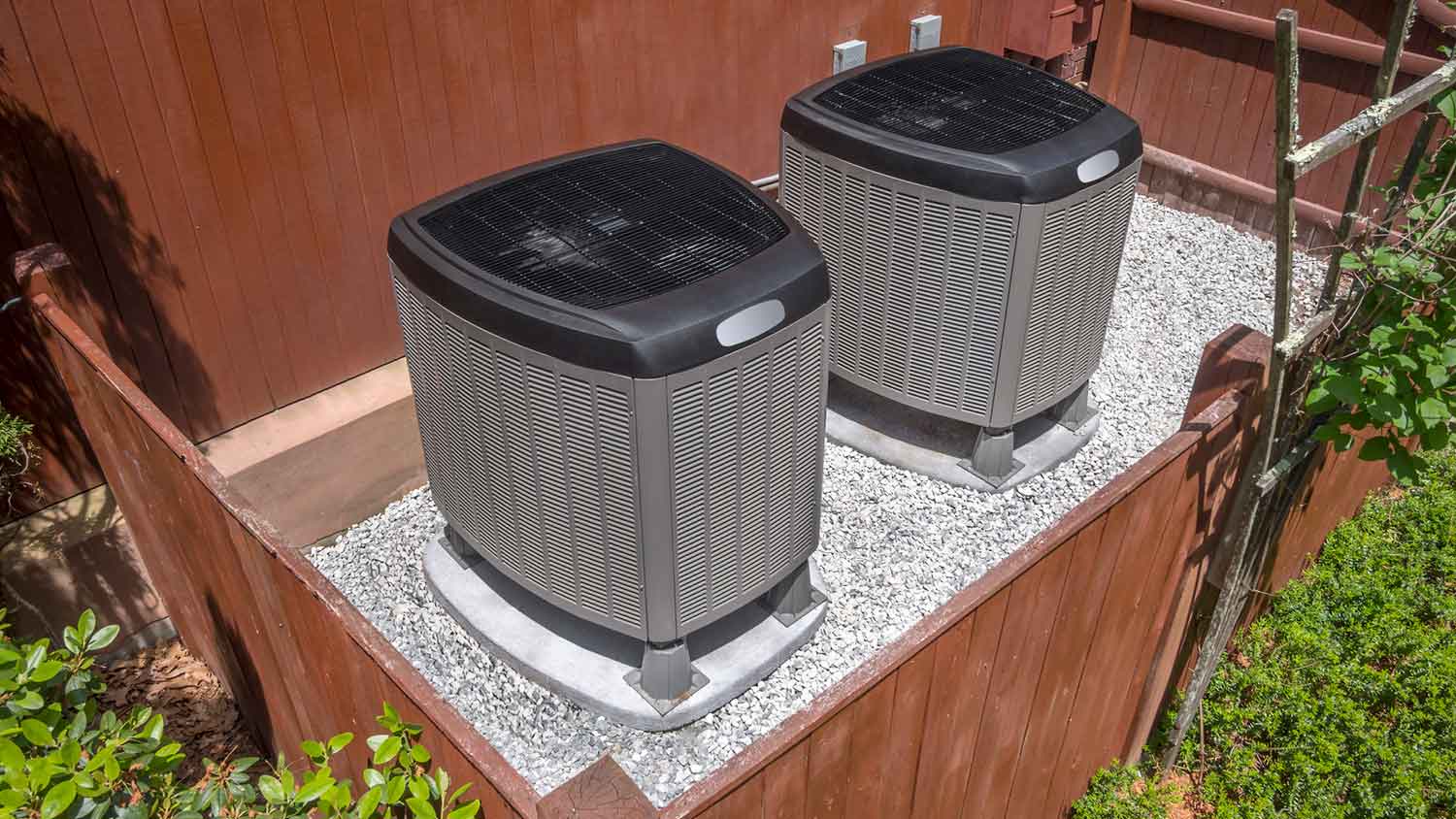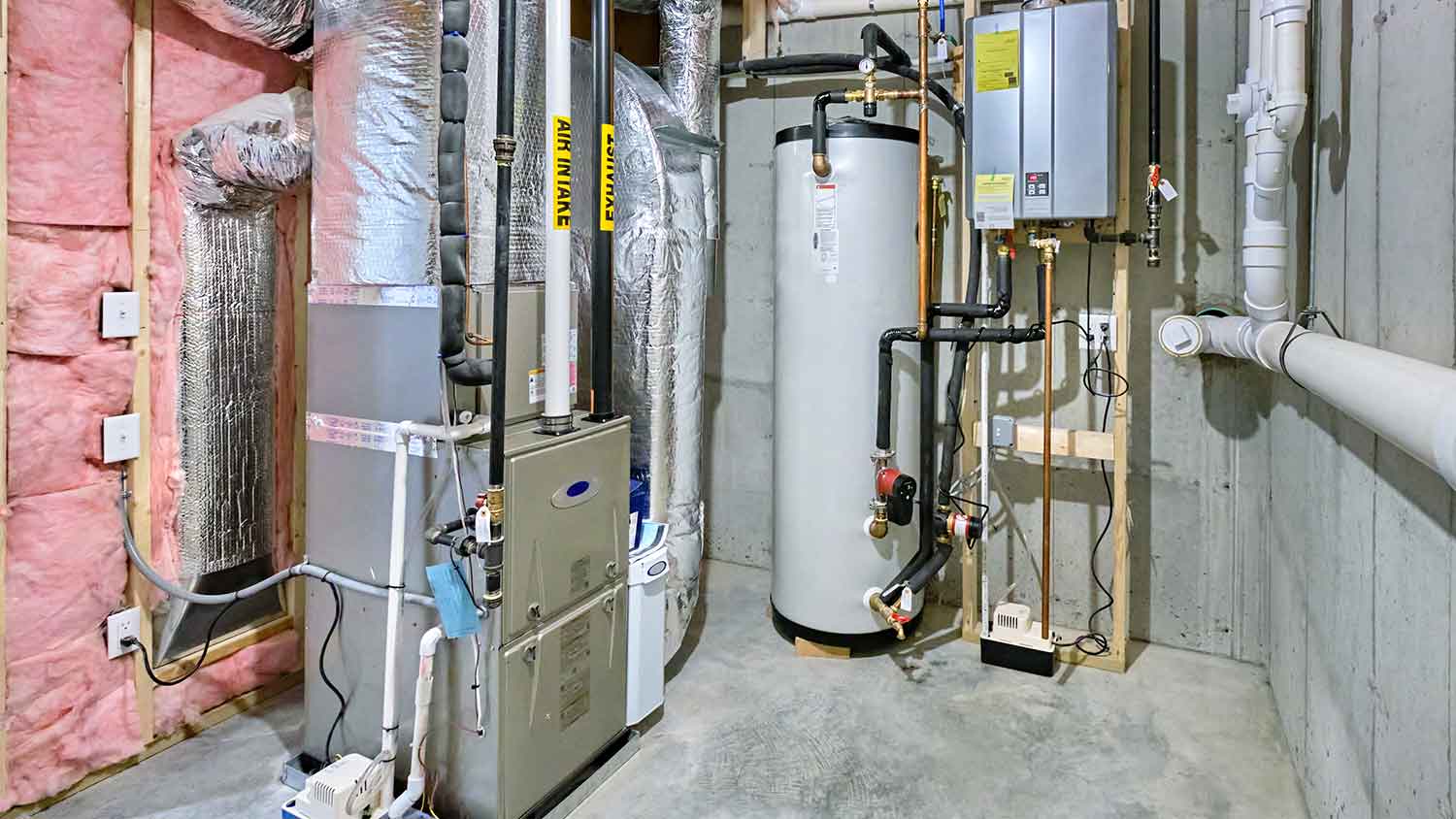
Considering a heat pump to reduce monthly heating and cooling bills? Find out geothermal heat pump costs based on system type, capacity, and other factors.
Pick the perfect spot for your HVAC unit


The location of your outdoor and indoor HVAC units matter more than you might think. Learning where to put your HVAC unit can save you money and maximize the unit’s lifespan. On the other hand, the wrong location can put unnecessary strain on your unit, leading to costly repairs and higher energy bills. Instead of settling on a random spot, use these seven tips to pick the best location for your HVAC unit.
Follow these guidelines for placing an outdoor HVAC unit.
Sunshine is great for plants. But when it comes to the placement of your outdoor HVAC unit, choose a spot that doesn’t receive direct sunlight. That way, during the hot summer months, your unit will stay cool and work optimally without exerting too much energy. This placement can also lower your monthly energy bill.
Look for a spot shaded by debris-free greenery or roofing during the hottest part of the day. Since the sun rises in the east and sets in the west, another trick is to place your HVAC unit on the north side of your home. In addition to following these tips, consult with an HVAC professional near you for unique insight on the best place for your unit.
Even relatively quiet HVAC units will make some noise. The constant humming and whirring noises can be a nuisance when napping in your hammock or entertaining guests on the deck. Avoid placing your unit in high-traffic areas of your property. It will make recreational activities more enjoyable, minimize the risk of accidental damage to the unit, and boost your home’s curb appeal.

If you have an especially curious or territorial dog, there’s a good chance they’ll take interest in your HVAC unit. Some dogs like to chew or urinate on air conditioner units, which can cause a serious problem for your HVAC system.
It’s important to place your HVAC unit in an area that your dog won’t be able to access. If this type of placement isn’t possible, consider installing a barrier around it, such as a small fence or a few well-manicured shrubs.
While trees and bushes can create shady conditions for your HVAC unit, make sure not to place it too close to greenery. Leaves, branches, pollen, grass clippings, and other debris can fall from surrounding vegetation and infiltrate your unit, causing costly damage. This also helps to keep your filter clean which can result in fewer replacements.
An indoor HVAC unit, also known as central air, pulls the heat and moisture from the air inside your home. Here are three must-know tips for choosing a spot for your indoor unit.

The center of your home is an ideal location for your indoor unit because it requires less ductwork, which saves money on future repairs and monthly energy bills. If that type of placement isn’t possible, choose a safe and secluded space where the unit can run efficiently, such as a small closet, pantry, or basement.
Avoid placing your indoor unit in an attic or a hard-to-reach crawlspace. Initially, this placement can seem like a good idea, but those spaces may cause the unit to overheat or expose it to water damage. Instead, pick a dry, cool place that’s easy to access for filter replacements and other maintenance repairs.
Just as heat from the sun can strain an outdoor unit, artificial sources of heat can pose a threat to your indoor HVAC unit. For that reason, avoid placing your unit near heat sources like lamps, televisions, and other appliances. This precautionary step will help regulate your home’s temperature and air quality without overworking the system.
From average costs to expert advice, get all the answers you need to get your job done.

Considering a heat pump to reduce monthly heating and cooling bills? Find out geothermal heat pump costs based on system type, capacity, and other factors.

If you’re having problems with your air conditioner’s condenser, it may be time for an upgrade. Learn about the cost to replace an AC condenser in this guide.

Whole-house humidifier costs vary based on the type and size of the unit, along with other factors. The price might be worth it for people living in dry regions.

Energy bills rising? Here’s how to perform a DIY duct leakage test to locate any damage in your ductwork and restore your energy-efficient home.

Having dirty evaporator and condenser coils works your HVAC system harder than it needs to. Here’s how to clean your air conditioner coils like a pro.

Not sure which kind of thermostat is best for your home? Here’s an overview of three types of thermostats so that you can choose the right one for you.